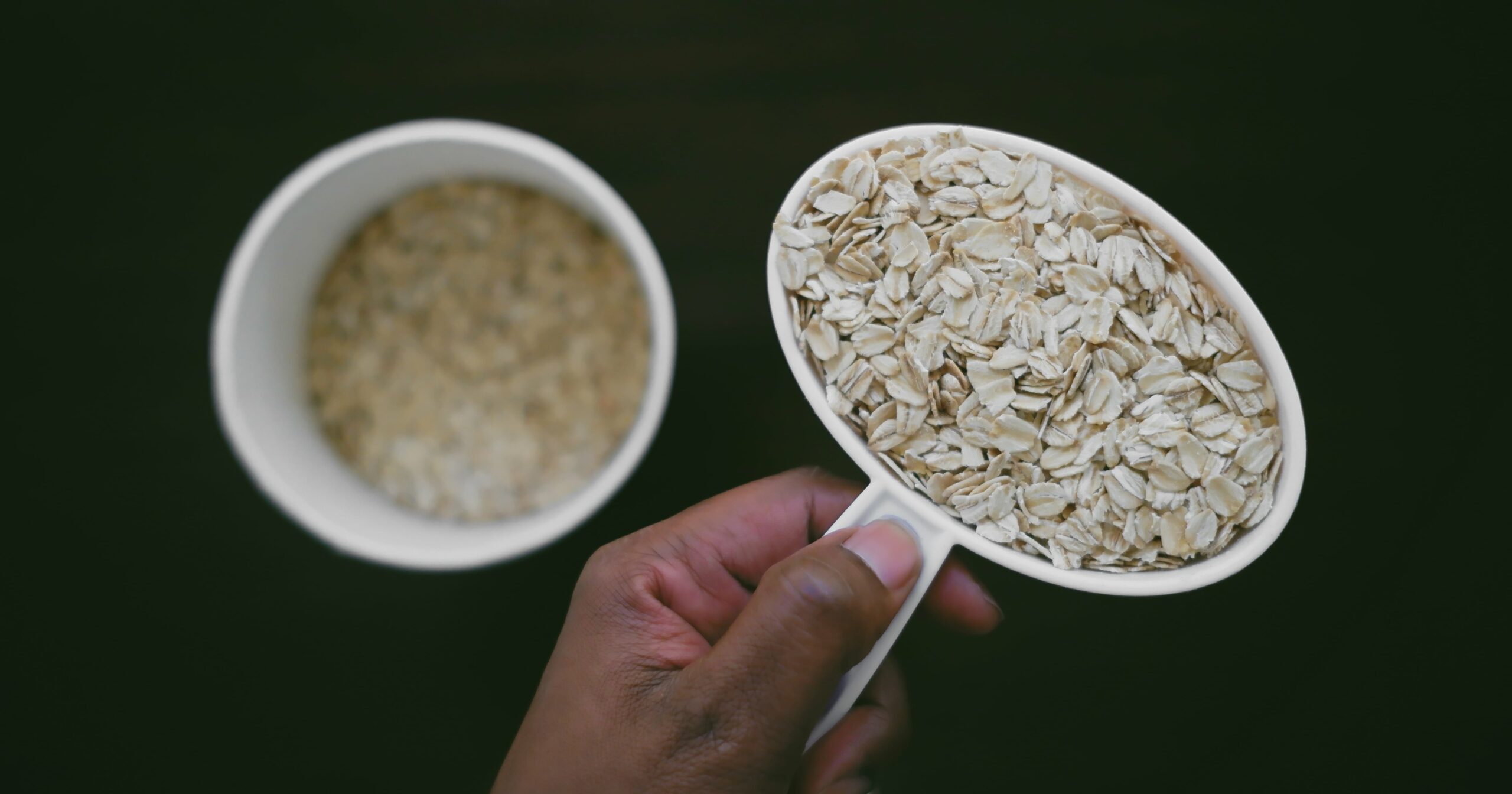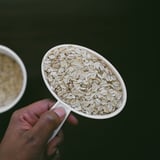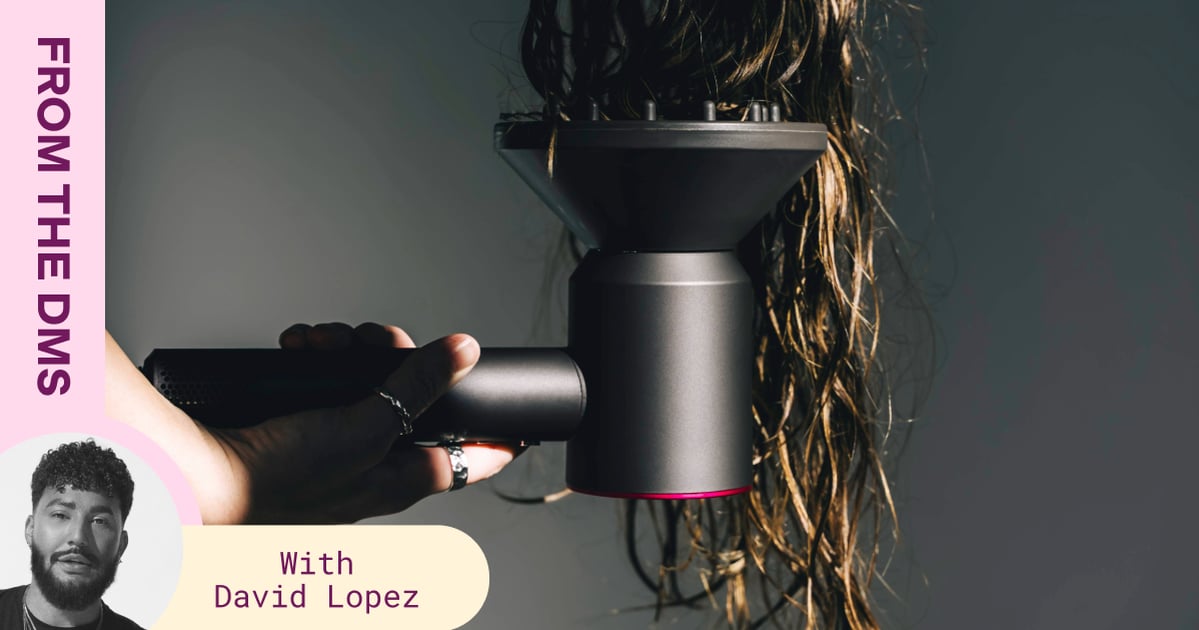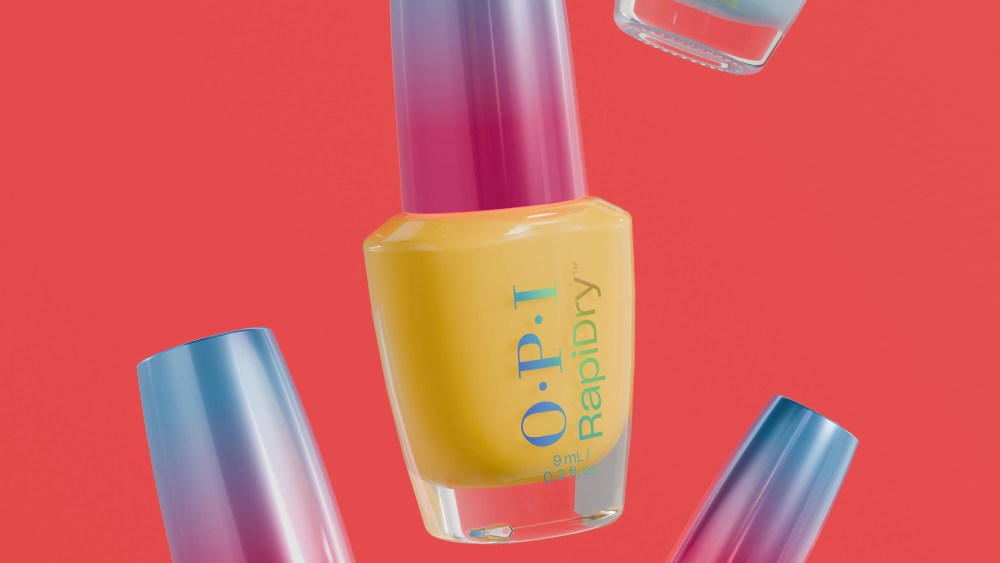If you thought Ozempic was controversial, just wait until you hear about “oatzempic.” Unsurprisingly, the polarizing trend comes to us courtesy of TikTok, referring to a drink made up of oats, water, and lime juice. The concoction may sound far from appetizing, but with TikTok creators claiming it’s helped them lose significant weight in the span of two months, it’s no wonder that #Oatzempic already has nearly 2000 posts on TikTok.
People documenting their oatzempic experiences online say the drink has helped them curb cravings and reach their weight-loss goals. “I started this on Monday and it works! It has decreased my appetite as well,” one commenter wrote under an oatzempic video. Still, others aren’t entirely convinced. “The problem with that kind of weight loss is when you do it so fast, if you stop that method you’ll gain even more back,” one commenter wrote. Others voiced similar doubts about the efficacy, along with some serious concerns about the taste.
Even if you can get past the taste of sour oat milk, is oatzempic actually safe to drink? Are the weight loss effects really comparable to GLP-1s like Ozempic (as the name suggests)? And more importantly, have we learned nothing about the dangers of drinks promising to help you drop weight fast (a la the Master Cleanse and other hyper-restrictive, liquid-based diets)? To get to the bottom of the viral oatzempic trend, we spoke with experts about what you should know before whipping out the rolled oats yourself. Read on to learn more about the oatzempic trend, including potential risks, benefits, and its effects on weight loss.
Experts Featured in This Article:
Avantika Waring, MD, is the chief medical officer at 9amHealth.
Katherine Basbaum, RD, is a clinical dietitian for MyFitnessPal.
Samantha Cassetty, MS, RD, is a nutrition expert with a focus on mental wellness and coauthor of “Sugar Shock”.
What Is Oatzempic?
Oatzempic generally refers to a drink made from a half cup of oats, one cup of water, and a squeeze of lime, all of which are blended together. Some people alter the recipe by adding cinnamon, peanut butter, or chia seeds. Oatzempic is typically used as a meal replacement at the beginning of the day, meaning you drink the concoction on an empty stomach, then eat the rest of your meals as normal. However, other creators drink oatzempic more often, depending on their preference.
One sign that it’s best to avoid this trend? It’s unclear who came up with the recipe, but it doesn’t appear to have been a doctor or registered dietitian. There are videos touting an oats-and-lime-juice concoction as “the drink that helped me lose X pounds in X months” posted as far back as Feb. 2023. That said, it was only more recently that people started calling this drink “oatzempic.”
Oatzempic Risks
“For most people there’s nothing dangerous about drinking this oat blend. It does not, however, replace a healthy diet inclusive of protein, fruits and vegetables, and healthy fats,” says Avantika Waring, MD, chief medical officer at 9amHealth. “If it’s being used as a meal replacement throughout the day, a person would miss out on many important macronutrients as well as vitamins and minerals.”
Katherine Basbaum, MD, RD is a clinical dietitian for MyFitnessPal, adds that consuming large quantities of raw oats can also have a laxative effect, potentially leading to diarrhea and dehydration. “While you may see a dip in the scale, it isn’t actual fat loss, and there is a risk of becoming dehydrated if you are not consuming an adequate amount of water,” Basbaum says.
While there may not be a huge immediate physical risk to drinking oatzempic, we know that restrictive and extreme diets can be very harmful in the long run, both mentally and physically. “If an eating behavior feels stressful or punitive, then it’s negatively impacting your mental and physical health – and, obviously, that isn’t good,” Samantha Cassetty, MS, RD, nutrition expert with a focus on mental wellness and coauthor of “Sugar Shock,” previously told PS. Restrictive diets like cleanses also perpetuate disordered eating, and therefore have the potential to lead you down a path of harmful eating habits – even to an eating disorder, especially in people who are predisposed.
What’s more, “we know extreme forms of restriction (e.g., cleanses, fasting, calorie counting) are actually linked with overeating in the long run. When you try to deny your body what it needs, your physiology wins out, and when you do eat, you’re way more likely to ‘overdo’ it than if you had just eaten regularly to begin with,” Mallory Frayn, PhD, a clinical psychologist who specializes in disorder eating, also told PS in the earlier article.
Oatzempic Benefits
Although there are health benefits to eating more oats, the oatzempic trend is all downside, since it involves meal replacement. “From a clinical perspective, there’s no health benefit of oatzempic beyond the health benefits of eating, for example, oats without sugar or additives,” Dr. Waring says. And again, the risks of a diet that emphasizes meal replacement or restriction far outweigh any potential benefits. Consider a tasty, fiber- and protein-rich oatmeal recipe instead.
Can Oatzempic Help You Lose Weight?
In a word: no. Oatzempic is not an effective, responsible, or safe method for weight loss. “We don’t have any data to suggest [oatzempic] is effective for weight loss,” Dr. Waring tells PS.
So what about the extreme weight loss people are reporting on social media? For one, they may be lying. (It’s known to happen on the internet!) But even if people are losing weight while drinking this mixture, Basbaum says what they’re experiencing is most likely loss of water weight. That means any “results” they’re seeing are likely temporary. In fact, the National Institutes of Health has reported that research shows that while restrictive diets like juicing – or, in this case, oatzempic – can result in early weight loss (because of the calorie restriction), “they tend to lead to weight gain once a person resumes a normal diet.” There’s also little research on the long-term effects of diets like this. “We need to keep in mind that there is zero research linking this fad to weight loss,” Basbaum emphasizes.
Is Oatzempic Similar to Actual Ozempic?
The term oatzempic is clever marketing, but the oat drink has no similarities to actual Ozempic, beyond the name. “Oatzempic does not mimic the effects of actual GLP-1s,” Basbaum says. “Ozempic, the drug, works by enhancing the effects of a naturally occurring hormone, GLP-1, that can lower hunger, cravings, and appetite. The oatzempic ingredients, either individually or in combination, have very little to no effect on the enhancement of the GLP-1 hormone.”
Oats do contain fiber, which is known to help foods feel filling. “Since one of the effects of GLP-1’s is that they promote a feeling of fullness or satiety, it’s possible that drinking blended oats, or consuming high-fiber foods in general could similarly promote a feeling of fullness,” Dr. Waring says. But it may not be enough to keep you full if you’re swapping a healthy, well-rounded breakfast with the drink. Plus, “eating high-fiber foods, lean proteins, and drinking plenty of water would likely have the same effect,” Dr. Waring notes. And it’ll probably taste better too.
Chandler Plante is an assistant editor for POPSUGAR Health & Fitness. Previously, she worked as an editorial assistant for People magazine and contributed to Ladygunn, Millie, and Bustle Digital Group. In her free time, she overshares on the internet, creating content about chronic illness, beauty, and disability.




